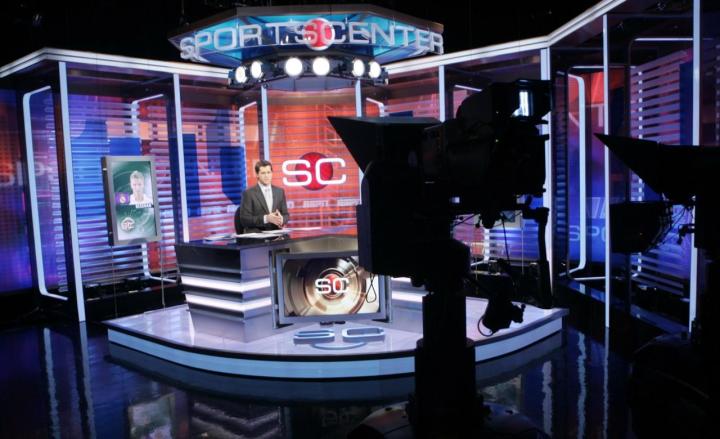
According to Bloomberg, ESPN has been in early talks regarding offering its channels through an Interet-based TV service.
The news comes during a month already full of tumult for the TV industry. Last week, we learned that Viacom will offer some if its popular stations such as Nickelodeon and Comedy Central through Sony’s Internet-TV service. Meanwhile, CBS and Time Warner Cable (TWC) continue to wage their war in the public eye as TWC customers in the New York, Los Angeles and Dallas prepare to endure their fourth straight week of a CBS blackout.
That ESPN is entertaining the idea of distributing its channels outside of the cable/satellite networks indicates it recognizes that companies like Apple, Google, Intel and Sony are going to make Internet-based TV delivery a reality, with or without its involvement. But if ESPN does get on board with Internet-TV distribution, it may be enough to get any “on-the-fence” networks moving in the same direction, and potentially open the floodgates of change for TV distribution. But is this actually a good thing for so-called cord-cutters and advocates of a la carte TV?
ESPN is, by far, the most expensive cable channel around. Analyst SNL Kagan estimates it represents $5.54 of a subscriber’s cable bill. Compare that to approximately $.60 for CNN, and even less for something like the Lifetime Network. In fact, it is the bundling of ESPN with other, less popular channels that helps keep those channels afloat. Needham and Company recently released a report indicating that unbundling channels could be the demise of the TV revenue ecosystem, citing that about 50% of TV-related revenue would simply vaporize and estimating that only 20 channels could survive under an a la carte TV model. If every on-the-fence cord-cutter were to ditch cable and satellite service in favor of a few Internet-delivered networks, Netflix, and Hulu, then cable and satellite companies could wind up with nothing left to carry.
That could leave cable companies with little choice but to boost their broadband Internet service rates, potentially negating any financial benefit to cutting cable. And don’t expect any help from the likes of ESPN, either. ESPN’s President, John Skipper, said today that an Internet TV provider would have to pay as much or more than cable and satellite services, and that in order to get ESPN, providers will have to buy up the entire suite of ESPN channels. “We’re not going to offer one-offs,” Skipper said.
So if ESPN through Intel’s Internet-TV box or Sony’s Playstation 4 console costs just as much as a basic cable subscription, but comes with none of the extras cable provides, is it worth ditching your cable provider?



